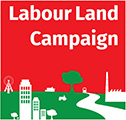LVT is a fair tax

- Every individual helps to create the value of land through their work, their community activities and their spending. Under the current system, only owners of land reap the financial reward, through higher rents or higher prices when they sell their land or property, which is equivalent to unearned income. LVT would reclaim from owners of land the value of land created by the economic activities of society as a whole, and allow the revenue raised to be invested in public services for the benefit of everybody.
- With Income Tax, the more one works, and the more efficiently one works, from which the whole economy benefits, the more one is taxed. Similarly, with taxes on capital, the more efficiently it is employed to generate jobs and profits that can be used for further investment in the economy, the more it is taxed. Meanwhile, Value Added Tax makes goods and services more expensive, thus dampening demand, and destroying jobs, and it particularly penalises low-income consumers. And, at local level, the Council Tax is highly regressive in that people on low incomes have to pay a much higher proportion of their income in tax than the better off. LVT would allow these taxes to be reduced, either by reducing tax rates or by raising thresholds, or, in some cases, eventually, eliminated altogether.
‘LVT is transparent and cannot be avoided’
- Unlike most other taxes, LVT is transparent and cannot be avoided by any individual or business. Land is highly visible and cannot be hived off into an offshore tax haven in order to avoid tax. Therefore, taxes collected for public expenditure will be shared more fairly by all individuals and businesses, including foreigners and non-domiciles, and businesses with headquarters abroad.
- LVT is fair also because owners of land in effect are charged for the benefits they receive. An area with more and better services (public and private) has higher land values, and therefore will be subject to higher taxes than a similar area with a lower level of services.
- Residents and businesses located in disadvantageous areas will automatically be compensated by paying less tax, because the land they occupy will have a lower value.
- Property owners and businesses investing in improvements that raise the value of the buildings that they occupy and their surroundings, which will also benefit the neighbourhood as a whole, will not be penalised with higher taxes because LVT is levied only on the value of the land according to its use as permitted by prevailing planning regulations.
Read more of our ‘Manifesto’:
Introduction
Fair
A green tax
Transport
Housing
Farming
The difference
Clear and simple
Implementing
